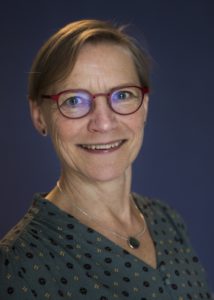 Ann Therese Lotherington is Professor of Sociology and Head of Department at Centre for Women’s and Gender Research at UiT The Arctic University of Norway. Her professional orientation is new material feminist theory and citizenship theory that she has used and developed for research in different empirical settings, most recently related to everyday life of people living with dementia. Her current interest in relational aesthetics and the significance of creativity in people’s lives comes from connections with people in some way afflicted with this disease. The entanglement of the creative arts in everyday life challenge dominant understandings of community and connectivity, and how a life with dementia might be lived, which demands renewed research approaches and new research to be fully understood.
Ann Therese Lotherington is Professor of Sociology and Head of Department at Centre for Women’s and Gender Research at UiT The Arctic University of Norway. Her professional orientation is new material feminist theory and citizenship theory that she has used and developed for research in different empirical settings, most recently related to everyday life of people living with dementia. Her current interest in relational aesthetics and the significance of creativity in people’s lives comes from connections with people in some way afflicted with this disease. The entanglement of the creative arts in everyday life challenge dominant understandings of community and connectivity, and how a life with dementia might be lived, which demands renewed research approaches and new research to be fully understood.

Rikke Gürgens Gjærum is Professor in Applied Theatre at UiT The Arctic University of Norway and Head of Artic center of welfare and disability research. She is also a Professor II at OsloMet on Master of aesthetic studies. Her professional orientation is on applied arts, gender issues, reminiscence theatre, marginalization processes, and theatre interventions in health institutions. She has developed innovative research designs in different health & cultural settings related to investigating the meaning of aesthetic experiences in people’s everyday life. Her interest in pragmatic aesthetics and the significance of creativity in the lives of people often defined as “marginal groups,” is based on her experience as theater director in the group “Usedvanlig Teater” in Harstad.
 Jill Halstead is a musician, composer and researcher working in the field of socially engaged arts. She specialises in collaborative devised performance projects, working on location with people who are marginalized and vulnerable. Working specifically with those living with dementia and their families, she has developed innovative forms of participatory creative practice which combine music and movement. Recent artistic work includes a series of screendance pieces and live performances tackling the social stigmatization around dementia and loss.
Jill Halstead is a musician, composer and researcher working in the field of socially engaged arts. She specialises in collaborative devised performance projects, working on location with people who are marginalized and vulnerable. Working specifically with those living with dementia and their families, she has developed innovative forms of participatory creative practice which combine music and movement. Recent artistic work includes a series of screendance pieces and live performances tackling the social stigmatization around dementia and loss.
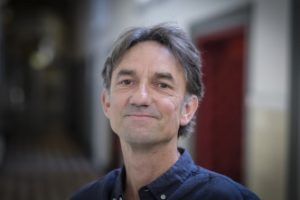
Ruud Hendriks, Department of Philosophy of the Faculty of Arts and Social Sciences (FASoS) at Maastricht University. Ruud has worked as a care worker in mental health care, before his studies in Health sciences and training in Science and Technology Studies. His academic work focuses on art- and technology-based interventions in mental health care. He has widely published on clowning in dementia care and on autistic spectrum disorders. For his ethnographic work on elder-clowning, he was trained as a ‘miMakkus’ clown himself. Ruud was project-leader and co-researcher in the project ‘Beyond autonomy and language’ that aimed to develop a disability studies’ perspective on dementia. His current interest is in the moral role things play in dementia care (project: ‘Make-Believe Matters’, that reflects on the ethics of technologies of make-believe in person-centred dementia care).
 Sonja Jerak-Zuiderent is Assistant Professor of Science and Technology Studies at the Department of General Practice at the Amsterdam University Medical Centres, Netherlands. Her overarching research interest lies in accountability and evaluation practices in the sciences broadly defined in relation to the more neglected, everyday aspects of ‘good science’. She has published on accountability practices and devices in health care, like guidelines and performance indicators, on social studies of patient safety, is currently developing publications on trans*care in Argentina, ethnographically exploring the difference of ‘good science’ across and within disciplines and is finalising her manuscript Generative accountability: Comparing with care (forthcoming with MatteringPress).
Sonja Jerak-Zuiderent is Assistant Professor of Science and Technology Studies at the Department of General Practice at the Amsterdam University Medical Centres, Netherlands. Her overarching research interest lies in accountability and evaluation practices in the sciences broadly defined in relation to the more neglected, everyday aspects of ‘good science’. She has published on accountability practices and devices in health care, like guidelines and performance indicators, on social studies of patient safety, is currently developing publications on trans*care in Argentina, ethnographically exploring the difference of ‘good science’ across and within disciplines and is finalising her manuscript Generative accountability: Comparing with care (forthcoming with MatteringPress).
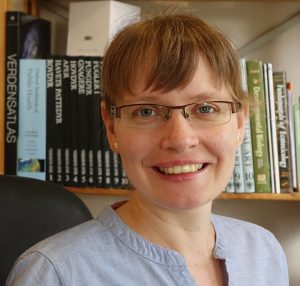 Dragana Lukić, Art researcher, PhD candidate in Gender Studies at the Centre for Women’s and Gender Research UiT The Arctic University of Norway. Dragana is exploring potentials of fine arts for opening up different understandings of dementia and persons with dementia. In her PhD project, Dragana analyses fiction film adaptations and literature that are dealing with dementia as a main issue. In addition, Dragana is responsible for organising individual and group fine arts interventions within and outside of care homes in Tromsø. Dragana has background in painting and gender studies from University of Belgrade and media arts from University of Gothenburg. She has long experience in exhibiting and participating in collaborative arts projects.
Dragana Lukić, Art researcher, PhD candidate in Gender Studies at the Centre for Women’s and Gender Research UiT The Arctic University of Norway. Dragana is exploring potentials of fine arts for opening up different understandings of dementia and persons with dementia. In her PhD project, Dragana analyses fiction film adaptations and literature that are dealing with dementia as a main issue. In addition, Dragana is responsible for organising individual and group fine arts interventions within and outside of care homes in Tromsø. Dragana has background in painting and gender studies from University of Belgrade and media arts from University of Gothenburg. She has long experience in exhibiting and participating in collaborative arts projects.
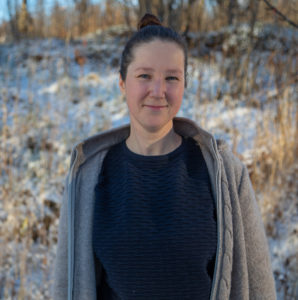 Lilli Mittner is a musicologist and holds currently a postdoc position in feminist art intervention at the Centre for Women and Gender Research at University of Tromsø The Arctic University of Norway. Lilli is broadly interested in non-oppressive practices in art making processes. She develops creative spaces of possibilities by intervening into social and cultural practices. In her project she addresses specifically methodological challenges in artists’ practices of working with people living with dementia by diffracting the theoretical basis of art interventions with feminist theory and relational aesthetics. Her research is situated in a broader context of arts-based research and the humanities. Lilli’s scientific background touches upon the fields of history, sociology, pedagogy, ethnology, and psychology of music as well as media and communication studies.
Lilli Mittner is a musicologist and holds currently a postdoc position in feminist art intervention at the Centre for Women and Gender Research at University of Tromsø The Arctic University of Norway. Lilli is broadly interested in non-oppressive practices in art making processes. She develops creative spaces of possibilities by intervening into social and cultural practices. In her project she addresses specifically methodological challenges in artists’ practices of working with people living with dementia by diffracting the theoretical basis of art interventions with feminist theory and relational aesthetics. Her research is situated in a broader context of arts-based research and the humanities. Lilli’s scientific background touches upon the fields of history, sociology, pedagogy, ethnology, and psychology of music as well as media and communication studies.
 Aud Obstfelder is professor and head of Centre for Care Research, Department of Health Sciences, NTNU in Gjøvik. The Centre is delegated responsibility by the Ministry of Health and Care Services to undertake research and development activities in municipal health and social care services. Her research is concerned with the social organization of healthcare work. In particular the consequences of new technologies and political initiatives for work practices, knowledge and practical skills, interactions between professionals and professionals and patients. These topics are explored through theoretical and empirical studies of the implementation and use of new technologies in healthcare services, interdisciplinary student practices and clinical encounters.
Aud Obstfelder is professor and head of Centre for Care Research, Department of Health Sciences, NTNU in Gjøvik. The Centre is delegated responsibility by the Ministry of Health and Care Services to undertake research and development activities in municipal health and social care services. Her research is concerned with the social organization of healthcare work. In particular the consequences of new technologies and political initiatives for work practices, knowledge and practical skills, interactions between professionals and professionals and patients. These topics are explored through theoretical and empirical studies of the implementation and use of new technologies in healthcare services, interdisciplinary student practices and clinical encounters.
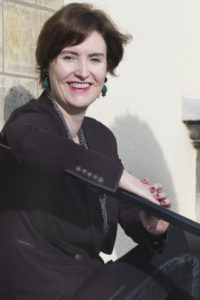 Aagje Swinnen is professor in Aging Studies at the Faculty of Arts and Social Sciences of Maastricht University. Her expertise lies in representations of dementia in literature and film; theories of personhood and intersections of gender, sexuality, disability, and age; and ethnographies of participatory arts approaches in residential dementia care settings. She has co-edited the volume Popularizing Dementia: Public Expressions and Representations of Forgetfulness (2015) with Mark Schweda.
Aagje Swinnen is professor in Aging Studies at the Faculty of Arts and Social Sciences of Maastricht University. Her expertise lies in representations of dementia in literature and film; theories of personhood and intersections of gender, sexuality, disability, and age; and ethnographies of participatory arts approaches in residential dementia care settings. She has co-edited the volume Popularizing Dementia: Public Expressions and Representations of Forgetfulness (2015) with Mark Schweda.
 Julian West is currently Head of Open Academy at the Royal Academy of Music where he combines a career as an oboist with developing ground-breaking creative learning and participation projects for in the field of music and dementia. He worked with Music for Life creating new music with people living with dementia and the people who care for them and within the Created Out of Mind Team at Welcome Trust that examined and challenged perceptions of dementia through scientific and creative experimentation. Julian’s practice is characterized by the forging of meaningful connections with and between those he is working with; the resulting work is not only for, about, and in response to the people involved, but could not exist without them.
Julian West is currently Head of Open Academy at the Royal Academy of Music where he combines a career as an oboist with developing ground-breaking creative learning and participation projects for in the field of music and dementia. He worked with Music for Life creating new music with people living with dementia and the people who care for them and within the Created Out of Mind Team at Welcome Trust that examined and challenged perceptions of dementia through scientific and creative experimentation. Julian’s practice is characterized by the forging of meaningful connections with and between those he is working with; the resulting work is not only for, about, and in response to the people involved, but could not exist without them.
 Hannah Zeilig has explored and written about the role and value of the arts for people with a dementia and the complicated ways in which our culture represents ‘dementia’. Her work is characterised by a trans-disciplinary approach and she collaborates with a wide range of colleagues from clinicians to scientists and artists. Most recently she has investigated the possibilities of artistic co-creativity with people with dementia. Hannah’s work combines theoretical rigour with real world knowledge of working with people with dementia.
Hannah Zeilig has explored and written about the role and value of the arts for people with a dementia and the complicated ways in which our culture represents ‘dementia’. Her work is characterised by a trans-disciplinary approach and she collaborates with a wide range of colleagues from clinicians to scientists and artists. Most recently she has investigated the possibilities of artistic co-creativity with people with dementia. Hannah’s work combines theoretical rigour with real world knowledge of working with people with dementia.
 Teun Zuiderent-Jerak, Associate Professor of Science and Technology Studies, Department of Thematic Studies – Technology and social change (Tema T), Linköping University. Teun is interested in research that draws together two activities often viewed as belonging to different realms: intervening in practices and furthering scholarly understanding of them. Arts interventions in dementia care are of interest to him for their potential to improve the lives of people with dementia, their families and carers, but mostly for how they allow us to explore new understandings of relational subjectivity. He has worked extensively on intervention research in medical practices, including being co-PI on a formative evaluation of a large national improvement program for long term care. His training is in Science and Technology Studies and he also publishes in medical sociology.
Teun Zuiderent-Jerak, Associate Professor of Science and Technology Studies, Department of Thematic Studies – Technology and social change (Tema T), Linköping University. Teun is interested in research that draws together two activities often viewed as belonging to different realms: intervening in practices and furthering scholarly understanding of them. Arts interventions in dementia care are of interest to him for their potential to improve the lives of people with dementia, their families and carers, but mostly for how they allow us to explore new understandings of relational subjectivity. He has worked extensively on intervention research in medical practices, including being co-PI on a formative evaluation of a large national improvement program for long term care. His training is in Science and Technology Studies and he also publishes in medical sociology.
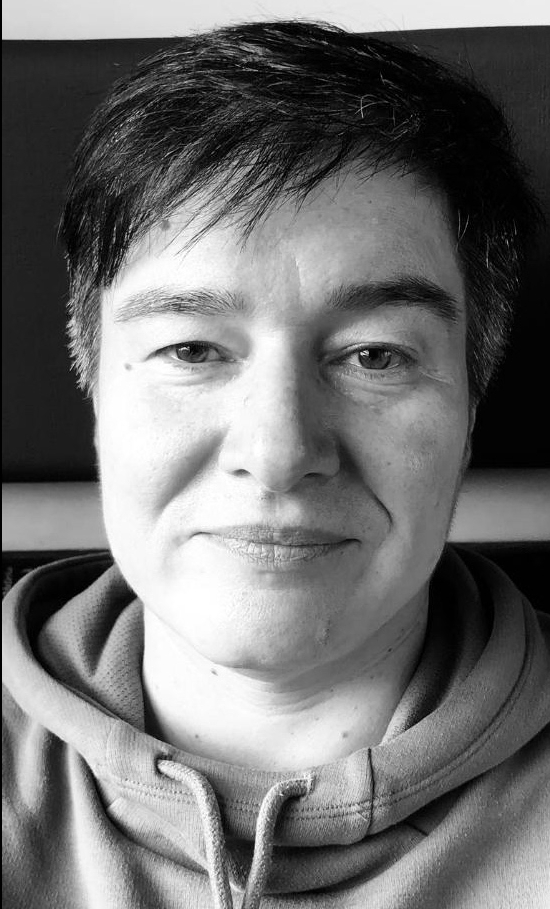
Teri Szűcs is a researcher and writer from Hungary. Szűcs originally specialized in the fields of Holocaust Studies and Hungarian Romani literature. Over the past half-decade she has been involved in dementia home care. She has started writing her autobiographical series titled “My Memory Returned to Me” to collect and recount the experiences and adventures of caring for her mother. “My Memory Returned to Me” is a multilingual writing project that aims to describe the caring relationship as a joint endeavour to remember, to learn and to change. It involves diasporic positions and identites – also as a manifestation of how the caring relationship rearranges fixed positionalities. Szűcs has also started her theoretical inquiry into the multiple functions of art in the context of dementia care. She is interested in the queering aspect of the intimacy of care, that is, in its potential to deconstruct normative relations and redefine affinities. Szűcs’s inquiry also encompasses the political aspects of care and gives an account of its crisis from an Eastern European queer feminist point of view.

Ingrid Tranum Velásquez is educated at London Contemporary Dance School at The Place, England and auteur from Scenekunstens Udviklingscenter, Denmark. Ingrid has for the last 10 years focused her choreographic work around documentary, participatory works and art interventions. She creates work for both children, youth and adults and has an investigative approach towards the performative events matter, form and content. She explores in her work the performative events potential to facilitate meetings between divisions in society, -local as well as global and choreographic methods to mediate authentic stories and the creative and transformative potential of the relation. Ingrid is founder and artistic leader of NextDoor Project www.nextdoorproject.dk Ingrids works are often characterized by multi-annual nomadic strategies, the work being build upon a conceptual, open and dynamic structure, making it possible to recreate and reshape the work in each relation between performers, citizens and local community. Ingrids choreographic works has toured extensively both nationally and internationally since 2003 and she has received many recognitions for her choreographic work a.o. working grants from the Danish Arts Council (2014, 2016, 2020), Choreographers Grant from the Actors Union (2010) and Ballemester Gaubiers Legat (2020). Her work Paolo&Money was nominated a Danish Performing Arts award (2012). Her work ’Happy End’ created in collaboration between nursing home residents and professional dancers has been touring around the nordics for 8 years and in 2021 a collaboration between Artful Dementia Research Lab, University of Tromsø and NextDoor Project was initiated researching in the artistic and relational practice of Happy End.
